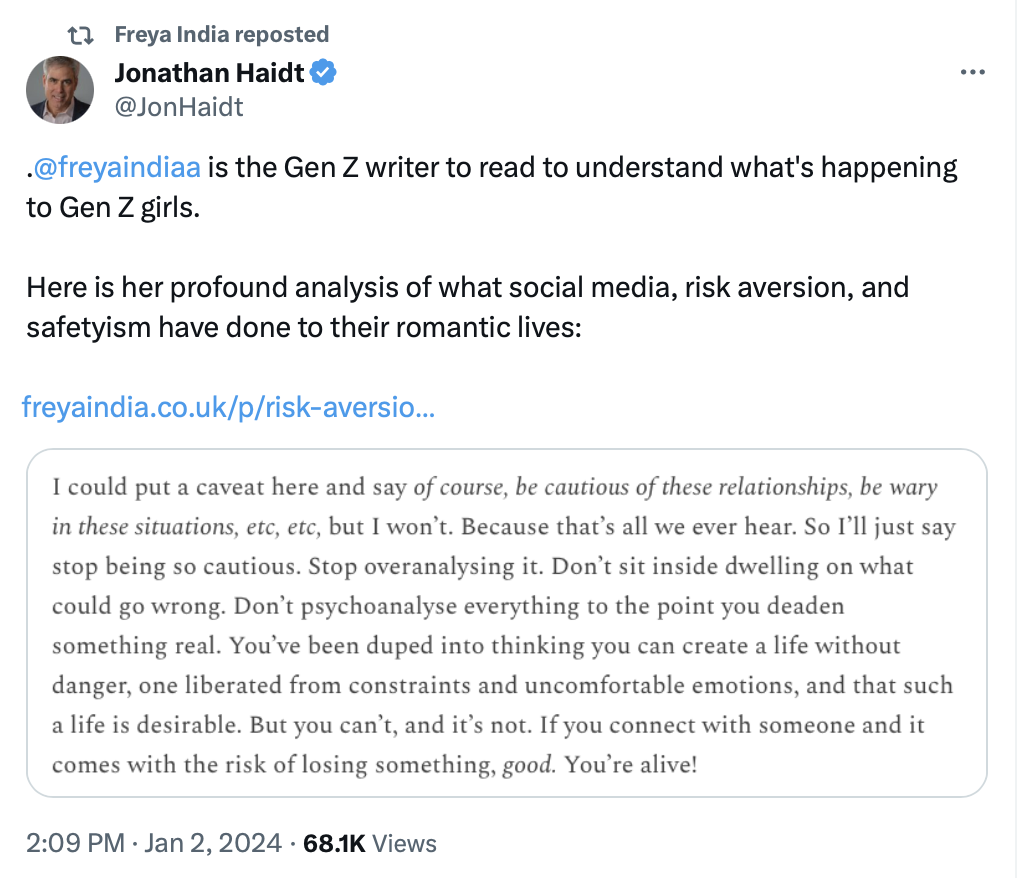Robert Malone Analyzes a Self-Serving “Limited Hangout” Regarding mRNA
Robert Malone offers this definition of "limited hangout":
A limited hangout is a propaganda technique of displaying a subset of the available information. It involves deliberately revealing some information to try to confuse and/or prevent discovery of other information.Why is this important? Because "limited hangouts" are ubiquitous these days. They are a common tactic of those who use propaganda and censorship to create false consensuses and prevent robust national discussion of critically important national issues. When they are caught red-handed, they offer only a tiny subset of information, which has the psychological effect of satiating the audience, causing use to think that the full story has been disclosed. The cleverly disclose a tiny part of what is often their own misconduct and complicity in order to gain just enough credibility that they can they use that ill-gained credibility as a trojan horse for the next chapters of their misconduct.
It misdirects an incautious audience, because information needs a context for correct interpretation. Subtly omitting information changes the interpretation of the surrounding information.
A modified limited hangout goes further by slightly changing the information disclosed. Commercially-controlled media is often a form of limited hangout, although it often also modifies information and so can represent a modified limited hangout.
Robert Malone takes a look at a very credible and scholarly-looking article, identifying it as a limited hangout, point by point. Here's the article:
“Lipid nanoparticle structural components, production methods, route of administration and proteins produced from complexed mRNAs all present toxicity concerns.”Here is an excerpt from Malone's article, his take-awayBitounis, D. et al. Strategies to reduce the risks of mRNA drug and vaccine toxicity. Nat Rev Drug Discov. 23 January 2024. https://doi.org/10.1038/s41573-023-00859-3; PMID: 38263456
In this recent review article (23 January, 2024), Bitounis et al. provide a partial disclosure and examination of known risks and toxicities associated with the modified messenger ribonucleic acid/lipid nanoparticle pharmaceutical delivery platform. In general, what makes this publication particularly remarkable is that (collectively) the authors have significant employment or other ties to Moderna therapeutics, a pharmaceutical company whose very name (MODified RNA) indicates its corporate dependency on the feasibility of this technology. As a veteran of prior biopharmaceutical corporations, it is inconceivable to me that these authors do not have pre-existing restrictive non-disclosure agreements with Moderna, and therefore it is highly likely that Moderna pre-approved this publication.
Therefore, my most generous interpretation of the overall intent of the article is that this article summarizes and represents information concerning risks and toxicities of this platform technology which Moderna wishes to have disclosed in a manner which puts the firm, its activities and the underlying platform technology in the best possible light. A less generous interpretation of intent is that this article represents a subtle form of propaganda strategy commonly referred to as a limited hangout.
The essay includes extensive speculation concerning how emerging new technologies such as artificial intelligence and organoids (simplified tissue culture structures mimicking an organ, that are derived from stem cells), as well as well established ‘high tech” approaches such as single cell sequencing can be used to minimize animal model use (a specific NIH objective). They are intended to facilitate more efficient pharmaceutical development and toxicologic analysis of modified-mRNA drug and vaccine development technologies.
Through the jaded eyes of this highly experienced proposal reviewer, this mostly reads like a forward looking justification for increased investment in a variety of expensive new pharmaco-toxicology infrastructure advances which would be in the financial and professional interest of the authors, while avoiding and overlooking time tested approaches to characterizing the profound and wide ranging toxicities of these pharmaceutical preparations.
In other words, this reads as an extended justification for spending a lot of money on new goodies for pharmacologists and toxicologists while avoiding the obvious and less sexy basics that still have yet to be performed and reported.
I highly recommend reading Malone's point-by-point analysis to understand how a limited hangout functions.

